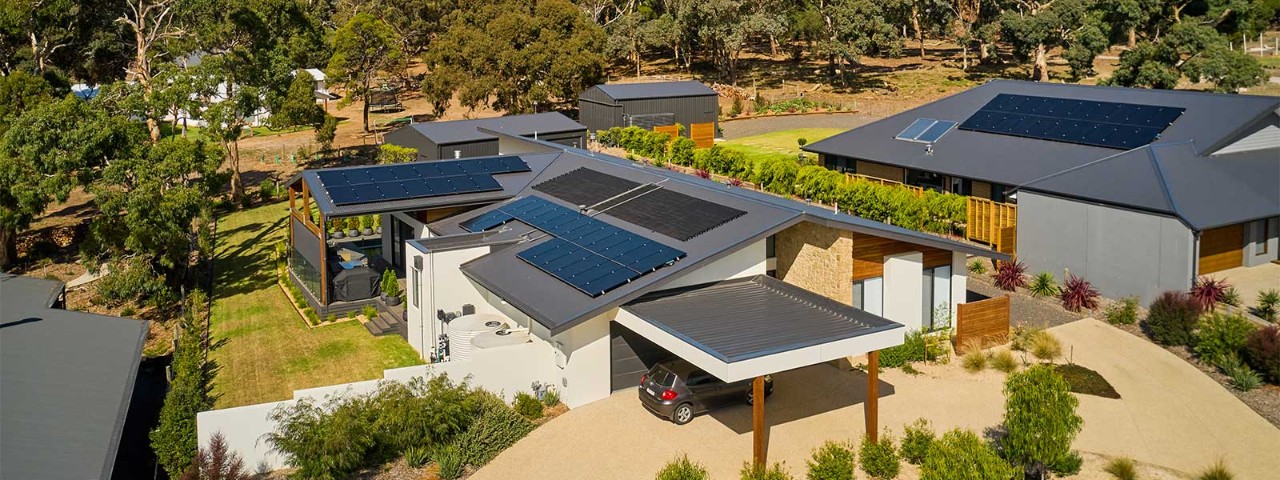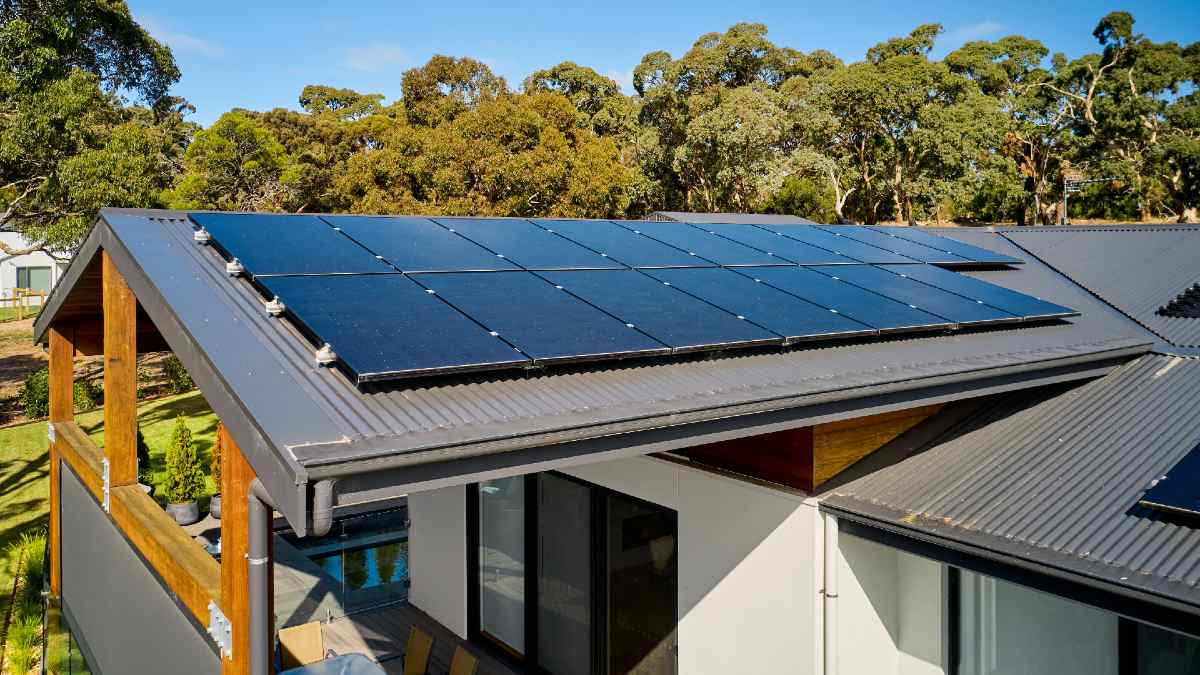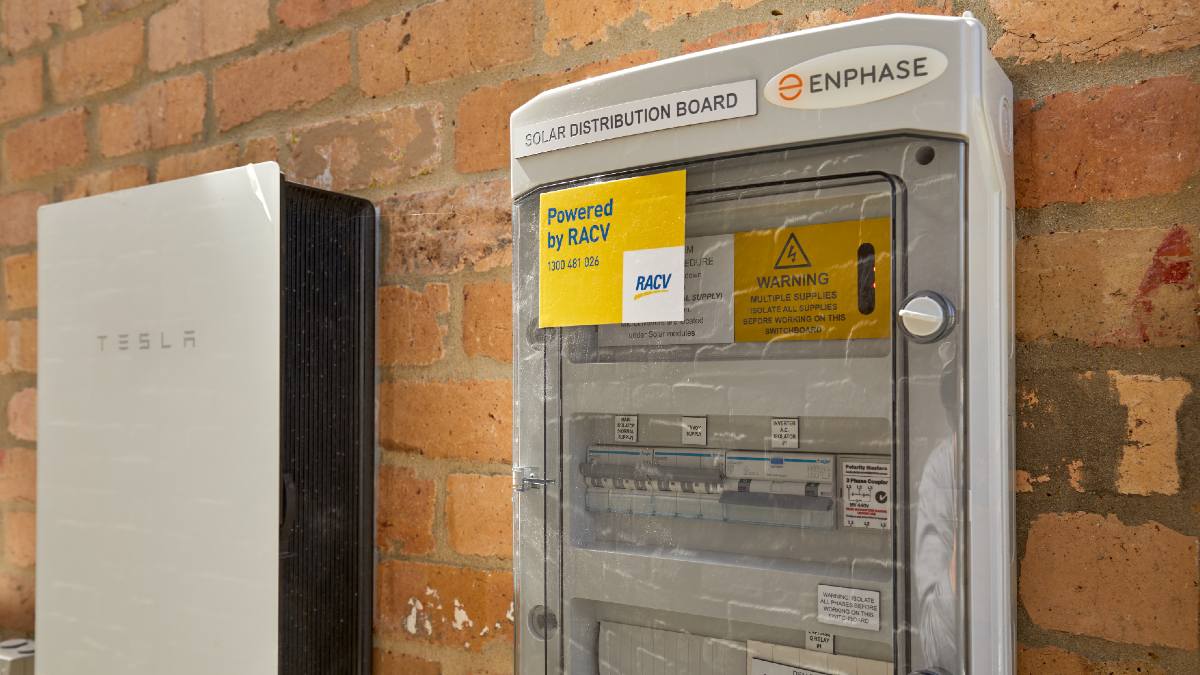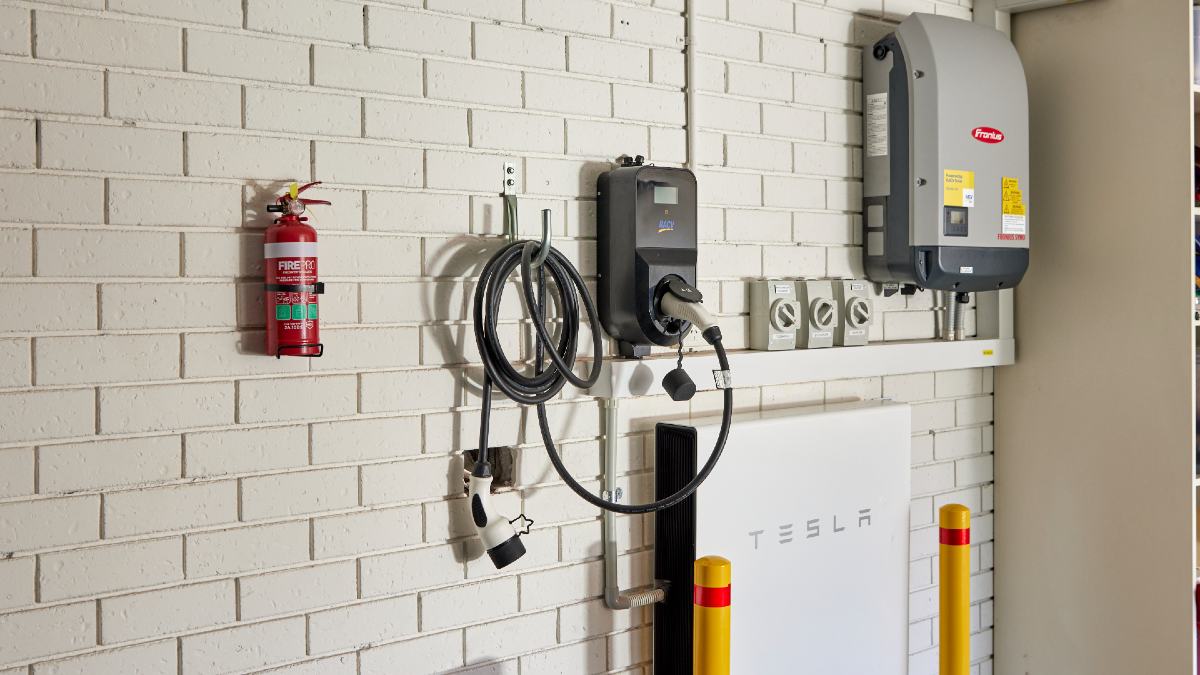The end of premium and minimum solar feed-in tariffs represents a shift in the financial landscape for solar energy users, but it also presents an opportunity to reassess and optimise your solar energy system.
How do solar batteries work and are they worth it?

What exactly are solar batteries, how do they work and how much money can they save you? Find the answers to all your questions about solar batteries below.
A solar battery can maximise your solar energy investment by helping you use more solar energy in your home and minimising the amount of electricity you have to buy back from the grid.
More than 18,000 solar battery systems have been installed across Victoria since August 2018 according to Solar Victoria, helping households save hundreds of dollars each year on energy bills.
Solar battery storage system FAQs
What is a solar battery?
A solar battery is an energy storage system that stores excess solar electricity generated by your solar panels throughout the day. Households can then use that electricity to power their homes when the sun isn't shining, like at night, reducing their reliance on the grid. Depending on the type of battery, you could also use stored energy during a grid outage or blackout, or even to power an electric vehicle.
How do solar batteries work?
During the day, your solar system generates electricity from sunlight which is used to power your home. If you have a battery, any excess solar energy that’s not being used in your home is sent to your battery for use later on when the sun goes down and your solar panels stop generating electricity. This means, with a solar battery, you can use solar power day and night, rather than having to buy electricity from the grid when the sun sets.
If the solar battery fully discharges (that is, runs out of power while you’re using appliances), your household will automatically switch back to using electricity from the grid.

A solar battery can power your home overnight with energy stored from your solar panels. Image: Matt Harvey
Do solar batteries protect against blackouts?
With blackout protection, you could keep your lights on in the event of a power outage using the electricity stored in your battery.
It’s important to note that while many solar batteries come with blackout protection, not all do. Some batteries come with built-in blackout protection, while others have the option of adding an optional backup box at an additional cost.
There are two types of blackout protection. Whole-of-home backup batteries power everything in the house during a blackout, but will drain quicker – especially if you continue to use power guzzlers such as air conditioners. Alternatively, an electrician can set up your battery for ‘essential load’ backup. This helps your battery charge last longer by isolating certain circuits to power the essentials only, such as lighting and fridges.
If blackout protection is important to you, make sure you discuss this with an accredited solar installer when discussing the right solar battery solution for your needs.
More: Do solar batteries work during a blackout?
How much do solar batteries cost? Are they worth it?
Solar batteries can help households save on energy bills.
The price of solar batteries varies depending on factors such as the size of the battery, the brand and whether you’re getting it installed at the same time as solar panels or whether you’re adding it to an existing solar system.
In general, you can expect to pay around $1,000 - $1,200 per kWh of storage. It’s cheaper to include solar battery installation as part of a new solar power system (that is, when installing solar panels) rather than adding a battery on to an existing system because you’ll cut out extra installation costs and combine the two components’ payback into one, shorter payback period.

Solar batteries are connected to the Solar Distribution Board by your installer. Image: Matt Harvey
Will I get a rebate on my solar battery?
Currently there are no rebates available on solar batteries.
Eligible Victorian households that install a qualifying solar battery to an existing solar PV panel system can now access an interest-free loan through the Victorian Government’s Solar Homes Program.
Which solar battery do I need?
When it comes to choosing the right battery for your home, it’s important to consider not only the type of battery – including the chemistry, size, cycle life, functionality and warranty – but also your home’s energy habits – including how much electricity you use, whether you value blackout protection and your budget. A good solar battery installer will work with you to identify and design the right system for your home.
More: Guide to Tesla batteries for solar
Solar battery chemistry
Common types of battery chemistries include:
Lithium-ion – li-ion batteries are lightweight and compact, can be efficiently charged and have very long lifespans. For most residential systems they are the best option, so many installers, like RACV Solar, only offer li-ion batteries. The two most common li-ion varieties currently sold are lithium-ion phosphate (LFP or LiFePO4) and lithium nickel manganese cobalt oxide (NMC). LFPs are considered safer because NMCs can overheat if discharged too quickly.
Lead-acid - until recently, most home batteries were ‘flooded’ lead-acid; they have since been replaced by sealed lead acid (SLA) batteries for additional safety. These batteries are mostly used in off-grid solar systems.
Flow - ‘flow’ batteries use liquids to store energy. Although they are safe, easily maintained, and can store charge for long periods, they currently have a very limited range in the residential market.
Solar battery size (and depth of discharge)
Solar battery size is measured in kilowatt-hour (kWh) units. You should match your battery’s size to your solar panel array: smaller for a small-scale panel set-up, and larger for a more comprehensive system. Keep in mind that the average Australian household consumes 16kWh of electricity per day, with two-thirds consumed during non-daylight hours (when solar panels cannot generate electricity). Therefore, a 10kWh battery will have almost enough capacity to provide your household’s energy needs if fully drained. Any energy you use past your battery’s capacity will be purchased from the power grid.
Keep in mind that solar batteries do not discharge to their full capacity, because that would shorten a battery’s lifespan. Instead, each battery has a ‘depth of discharge’: an amount beyond which a battery will not discharge. For example, lithium-ion batteries typically discharge 90 to 95 per cent of its total capacity. Therefore, if a battery is listed as 10kWh, it may really supply only 9.5kWh if its depth of discharge is 95 per cent.
Solar battery cycle life (and warranty)
A solar battery’s ‘cycle life’ is a figure that details how many times the battery can charge and discharge before it degrades. Standard cycle life is currently around 6,000 cycles – that's a daily charge/discharge over 10 years. As a result, most solar battery warranties are valid for 10 years.
Solar battery functionality
Make sure that your solar battery can do everything you need it to. If you require blackout protection to support your household during a power outage, for example, you will need to choose a battery with that ability. Other special functions may include using local weather data from online services to predict when the cheapest time is to charge the battery.

An accredited installer will help you decide which battery is right for your household. Image: Matt Harvey
How do I install a solar battery?
Get in touch with an accredited installer. Solar experts can help you decide which battery is right for your household, install and connect your battery to the grid, and help you apply for the interest-free Solar Homes Battery Loan.


